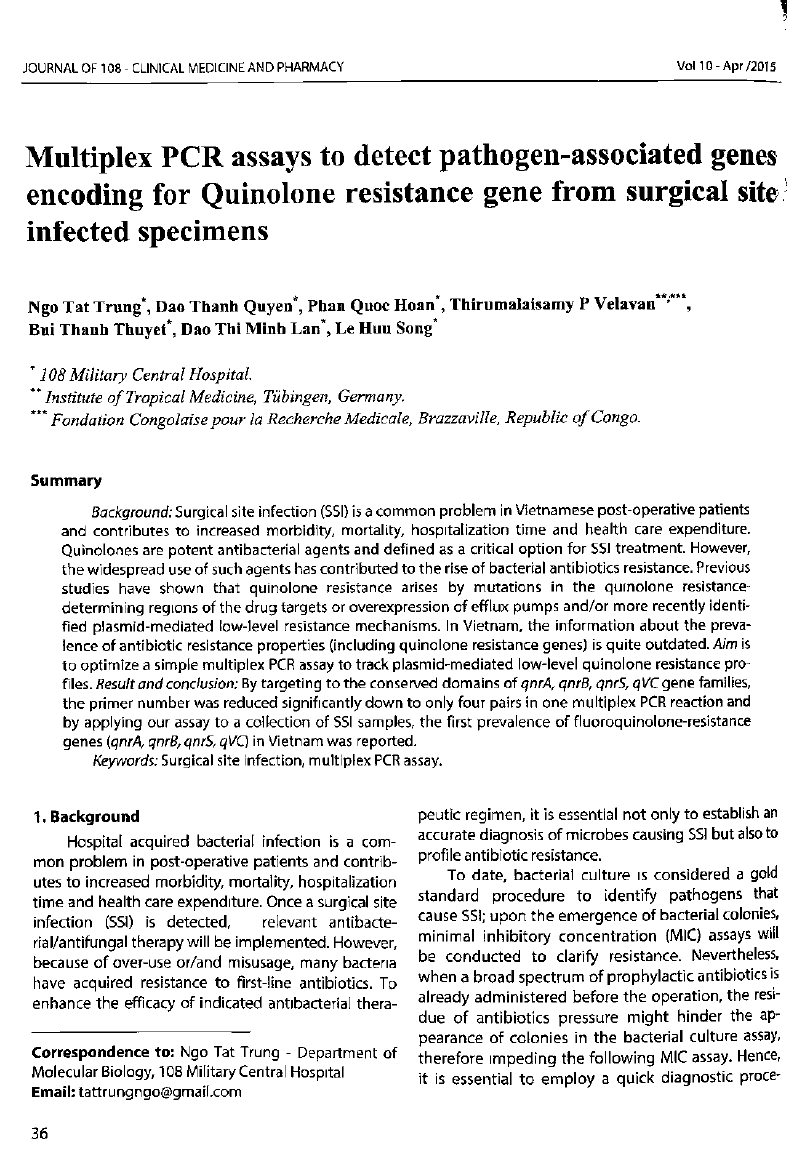
Background: Surgical site infection (551) is a common problem in Vietnamese post-operative patients and contributes to increased morbidity, mortality, hospitalization time and health care expenditure. Quinolones are potent antibacterial agents and defined as a critical option for 551 treatment. However, the widespread use of such agents has contributed to the rise of bacterial antibiotics resistance. Previous studies have shown that quinolone resistance arises by mutations in the quinolone resistancedetermining regions of the drug targets or overexpression of efflux pumps and/or more recently identified plasmid-mediated low-level resistance mechanisms. In Vietnam, the information about the prevalence of antibiotic resistance properties (including quinolone resistance genes) is quite outdated. Aim is to optimize a simple multiplex PCR assay to track plasmid-mediated low-level quinolone resistance profiles. Result and conclusion: By targeting to the conserved domains of qnrA, qnrB, qnrS, qVC gene families, the primer number was reduced significantly down to only four pairs in one multiplex PCR reaction and by applying the assay to a collection of 551 samples, the first prevalence of fluoroquinolone-resistance genes (qnrA, qnrB, qnrS, qVC) in Vietnam was reported.
- Đăng nhập để gửi ý kiến
